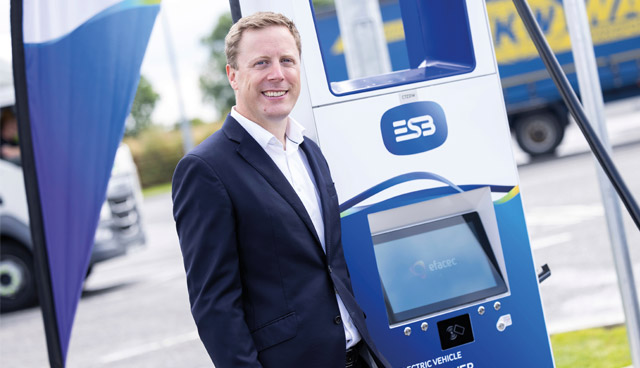
Planning for a net zero future
8th March 2022
Driving Northern Ireland’s EV charging network
8th March 2022Powering a green economy

Head of RenewableNI, Steven Agnew, discusses the opportunities for renewable energy following the publication of Northern Ireland’s path to net zero.
RenewableNI (RNI) is a not-for-profit representing nearly 50 businesses across the renewable electricity sector.
We work together with our members and stakeholders to create a better future, powered by clean electricity.
We promote responsible development, support good community engagement and the delivery of low-cost electricity generation from sources such as wind, solar, tidal and battery storage, using our greatest natural resources.
As a collaboration between Wind Energy Ireland (WEI) and RenewableUK (RUK), we also work closely with both trade bodies on issues impacting the renewable electricity industry across the UK and Ireland.
RenewableNI welcomes the publication of Northern Ireland Energy Strategy and its target of 70 per cent renewable electricity by 2030. The Action Plan is essential in giving our industry confidence that ambitious rhetoric will be backed up by delivery.
Key for us in the 2022 Action Plan is the commitment to a renewable electricity support scheme in 2023, which RNI called for during the consultation period.
This will unlock significant investment in the Northern Ireland economy. In our Powering A Green Economy report we demonstrated the onshore wind sector alone could contribute over £3 billion by 2030. I was able to meet Economy Minister Gordon Lyons MLA in January 2022 to discuss the report.
Another major development, in the Strategy, is the commitment to 1GW of offshore wind from 2030. Onshore wind and solar, already in use in Northern Ireland will easily get us to the to 70 per cent renewable electricity, but investment in new technology is required to reach the 80 per cent RNI members want to achieve.
RenewableNI is commissioning an offshore wind study to outline how Northern Ireland can maximise the economic benefits of this emerging industry. In Northern Ireland past investment in infrastructure and skills should mean we are well positioned to make this happen.
However, all this can only work if we have a well resourced planning system.
The performance of our planning system is not reflective of the high planning fees our members are paying and timescales are prohibitive. Wind farms are spending more than twice as long in planning here than in Great Britain. This is a considerable disincentive to investors who are operating across these islands and globally.
Furthermore, the Department for Infrastructure needs to get a grip of planning policy with local councils moving in the opposite direction to strategic policy.
There are major changes in store for the renewable electricity sector and RenewableNI will ensure our members voices are heard at all levels of government.
RenewableNI has launched a new renewable electricity webinar series aimed at engaging, educating and stimulating debate in the renewable electricity industry. Each month, a free webinar will cover a renewable electricity theme that is especially relevant in achieving the goals of the Energy Strategy.
We began in February with an Energy Strategy special and in March will have a session on solar power. You can watch the previous webinar and find out more at www.RenewableNI.com/webinars.
RenewableNI
T: +44 (0) 28 9044 6240
E: Steven.Agnew@RenewableNI.com
Judith.Rance@RenewableNI.com
W: www.RenewableNI.com
Twitter @RenewableNI
LinkedIn www.linkedin.com/company/RenewableNI

